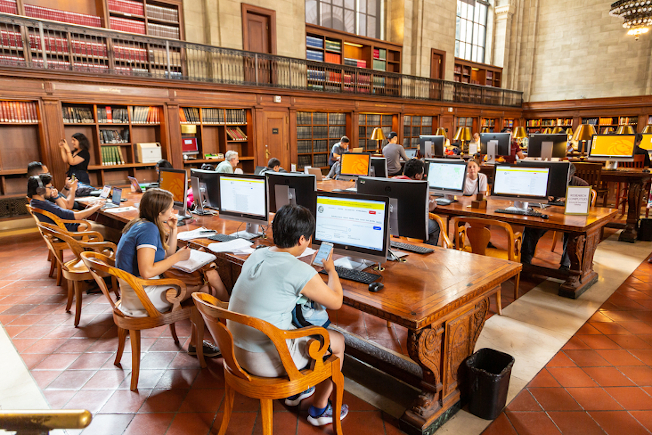Books Replacing Digital Devices in Sweden's Schools

(Photo credit: Depositphotos.com)
Sweden's students will spend less time on computers and more time hitting the books, after the country's schools minister said back-to-basics learning was needed.
Lotta Edholm called for the return to traditional learning, with handwriting favored over keyboarding skills and the printed page prized above illuminated screens, after complaints snowballed of graduates who could barely function without devices in front of them.
Since schools returned this month, teachers have downplayed the previous emphasis on independent learning and the use of online resources and reintroduced ideas including quiet reading time in classrooms, the Associated Press reported.

(Photo credit: Depositphotos.com)
Edholm, who has been schools minister for less than a year, had previously criticized Sweden's reliance on technology in the classroom, which included the allocation of tablets to toddlers in kindergarten.
"Sweden's students need more textbooks. Physical books are important for student learning," AP quoted her as saying earlier this year before announcing in August that the government would begin to edge away from technology in the classroom. The news agency said the Swedish government plans to begin by completely ending digital learning for students aged 6 and under.
Sweden's Kapolinska Institute, a medical school that specializes in research, backed the government's stance in August, saying: "There's clear scientific evidence that digital tools impair, rather than enhance student learning. We believe the focus should return to acquiring knowledge through printed textbooks and teacher expertise, rather than acquiring knowledge primarily from freely available digital sources that have not been vetted for accuracy."
The UN has also expressed concern about the proliferation of digital devices in the classroom, with its education and culture agency, UNESCO, saying in a report last month there was a need for "appropriate use of technology in education".

(Photo credit: Depositphotos.com)
UNESCO called on countries to speed up schools' internet connections, but also make sure online learning never replaces in-person, teacher-led lessons.
Several other European nations have also expressed concern about the widespread use of digital devices in the classroom, with the Netherlands deciding this year to ban all mobile phones and electronic devices from the classroom.
But other nations have been ramping up their use of digital devices, with Poland launching a program this year that aims to give every Grade 4 student a government-funded laptop.
Neil Selwyn, a professor of education at Monash University in Melbourne, Australia, told The Guardian newspaper the backlash against technology in some countries has been "a popular move with conservative politicians.”
"It's a neat way of saying or signaling a commitment to traditional values," he said, while noting that there is little concrete evidence to say digital devices either improve or damage student learning.

(Photo credit: Depositphotos.com)
This article was originally published by China Daily (Global). It’s republished here with permission via DISCO Content Marketplace.
Highbrow Magazine
Image Source:































































































































































































































































































































